[quote_box_center]There’s a distinct lack of content specific to what it is to be a black American, the variations in that experience, what life is like for people who are ordinary. Those are the stories I want to tell. -Tanya Hamilton [/quote_box_center]
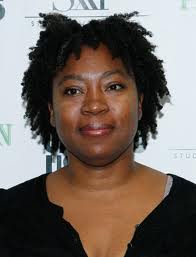
In the wake of Michelle Alexander’s masterpiece on The New Jim Crow in the 21st century – the mass incarceration of black men in the age of colorblindness – I do not know what to feel about Night Catches Us, 2010.
But, I can admirably confess that there aren’t many filmmakers out there who could have achieved what Tanya Hamilton attempted to do in 90 minutes. Only I was sometimes at a loss as to which side of the Black Panther Party for Self Defense director Tanya intended to paint.
The story warrants our interest mainly because a former Panther ‘snitch’ Marcus (Anthony Mackie), returns to Philadelphia. In 1976, the Black Panther Party, its complexity, the warring factions within it and the presence of former Panthers in Philadelphia stoke an exciting plot about the ‘unheroic’ return of the once respected Panther to his home turf.
Now, like Malcolm X, 1992, Night Catches Us, 2010, took on a herculean task and unlike X, it may have perhaps, only succeeded in powdering our faces with reservation and left us without the possibility of reaching an iota of sympathy or understanding for the defunct Black Panther Party.
When making a movie about the actions of a sophisticated person (Malcom X) or about really complex organizations (The Nation of Islam and the Black Panther Party, for examples), the writer is faced with two dilemmas:
First, is the writer typically empathetic enough to replicate the actions and abilities of a genius (like Malcolm X) in a credible way? Or of a complex organization in an experienced way? Even if there is a source material – in this case for Malcolm X, Alex Hailey’s The Autobiography of Malcolm X – is it equipped with a clear understanding of the actions of the genius or the organization?
Secondly, how much work and perhaps, putting into context, does the writer/filmmaker want the audience, intelligent or not, to do in order to be entertained and at the same time informed over popcorn in a span of two hours?
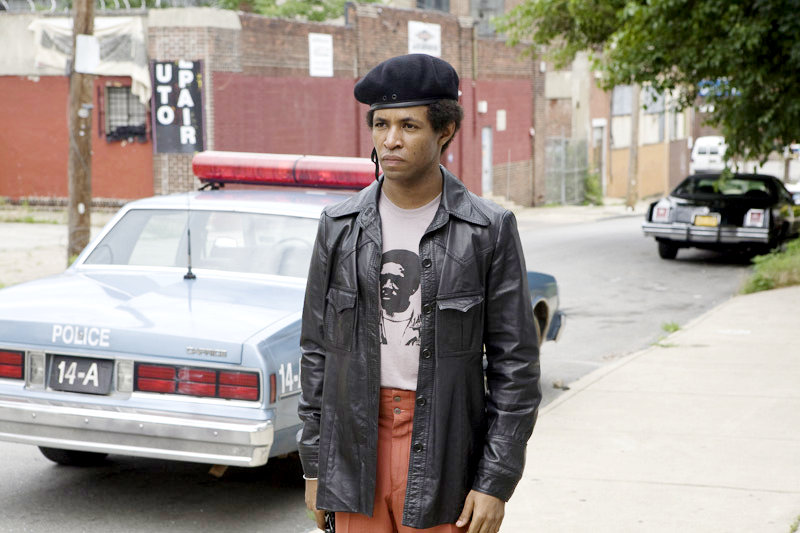
And the result can be pretty maddening and oftentimes silly. Most movies are unable to effectively present a protagonist or a concept that is as brilliant as we are told it is or present an organization that is as complex as we know it was. Whether this is a problem with the source material or an artifact of the screenplay, I really don’t know.
Only a handful of films excel at this task – Malcolm X, 1992, is one of them! I cannot mention Night Catches Us in the same breath but I am tempted in every way to give it some good rating, albeit, only in direction.
Night Catches Us lacked the content that was necessary for us to understand The Black Panther Party. It was also deficient in the sensitivity we needed in order to admire the Panther Party’s character or even disapprove its actions, for example.
There was no way I could have sympathized in creed or color with the Black Panther Party, at least not from the movie, and not that I needed to, but for a party that was founded on the initial doctrine – calling primarily for the protection of African Americans from police brutality – the intricacy of their intentions cannot be brushed aside that easily, especially in the face of the current mass incarceration of black men in America.
In this light, I think period movies ought to call on our present understanding and perceptions in order to inform us objectively about the past. Since to have gotten here, we must have come from there. The present is inextricably linked with the past.
But, maybe the intention in Night Catches Us was to portray the Party and the vestiges of the organization merely in contrast to the broader and more acceptable approach to attaining equality through more peaceful means in America. Rather than outrightly portray Marcus and Patricia as the good ones, I feel the script could have wisely spelled out the discord within the Party and the difficulty in achieving an ideological consensus, which caused some prominent members of the Panther Party to openly disagree with the views of the leaders.
But I found some solace in Patricia (Kerry Washington), the widow of the slain Panther, who was the more complex character. Now a lawyer and living with her daughter Iris, in the same house where her husband was killed – out of her own snitching – she’s welcoming to Marcus because Marcus had taken the heat from the Panther Party for her. Although, the reason she snitched on her husband was not clearly supported, we glean from the story that she did it to save herself from going to jail and keep her daughter, Iris, out of the foster care system!
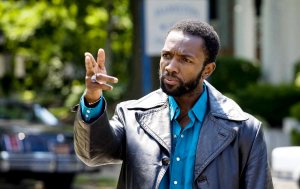 In the final scenes however, Marcus asks Patricia to leave Philly with him and put the past behind her. She refuses. And this spells out the intriguing metaphor in Pat and the premise of the film, that perhaps, not everyone can completely unshackle the past from her present.
In the final scenes however, Marcus asks Patricia to leave Philly with him and put the past behind her. She refuses. And this spells out the intriguing metaphor in Pat and the premise of the film, that perhaps, not everyone can completely unshackle the past from her present.
Jamie Hector playing DoRight Miller, Marcus’ adversary, was entertaining to watch and so was Wendell Pierce who played David Gordon, the police chief. I wanted to see more of them and that’s possibly why I felt the plot should have explored the Party a lot more and used Jamie and Wendell’s swags even as we know them from The Wire to good taste and full effect.
But, in all, it’s a film worth making and a direction I can safely say Tanya Hamilton is quickly developing and I would love to see her improve in her next film.
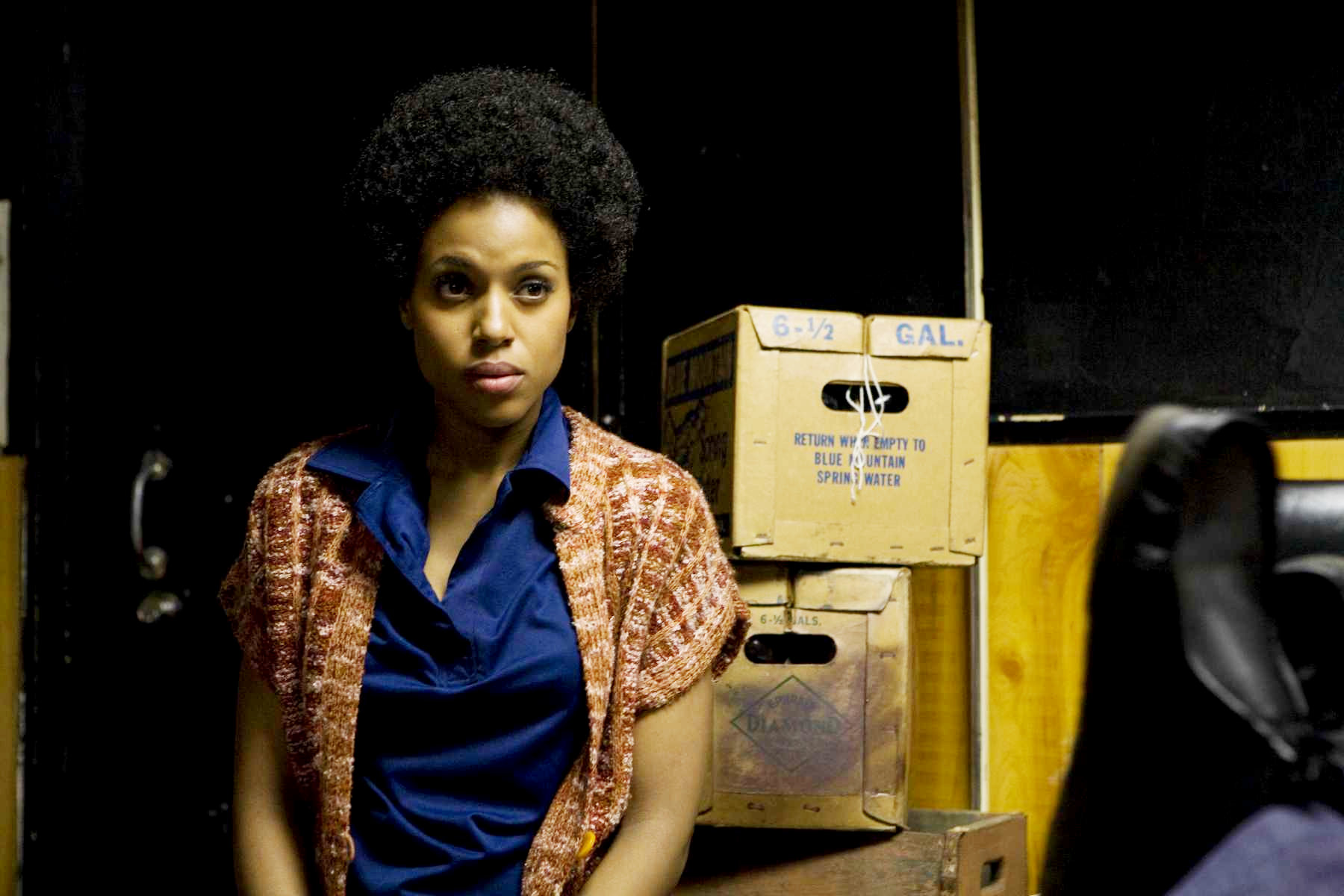

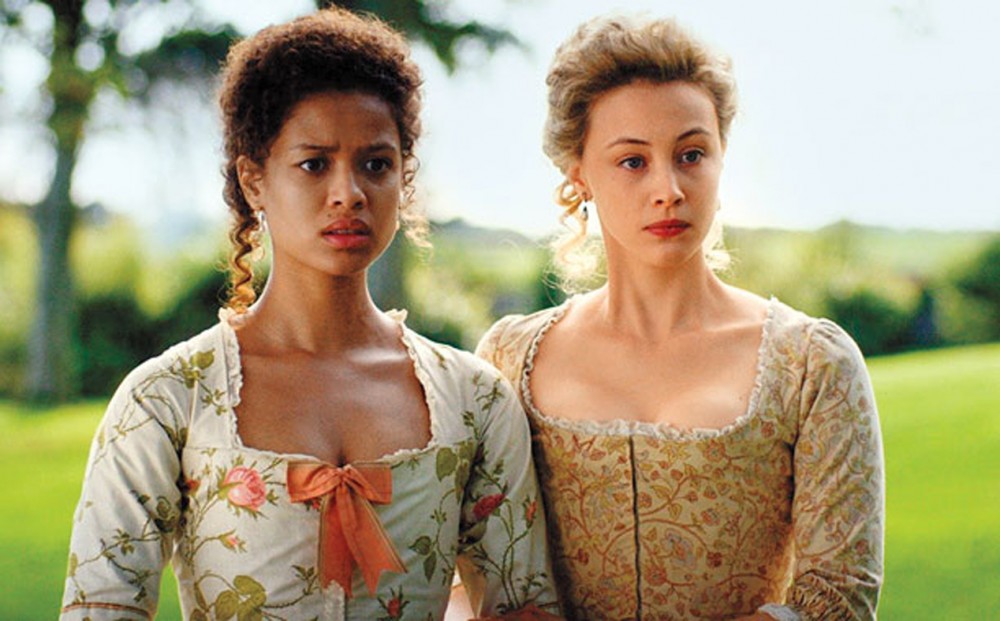








This movie is definitely under discussed and it’s one of those that kind of flew by the black community, so thanks for the post! I too would like to see more from Ms. Tanya Hamilton. This is a great film debut for her.